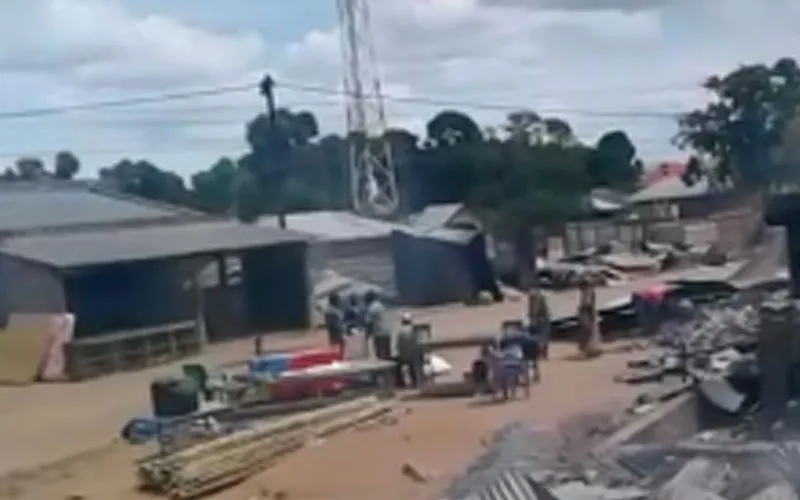Maputo, 11 October, 2021 / 10:00 pm (ACI Africa).
Photographs taken by Catholic Peace and charity foundation Denis Hurley Peace Institute (DHPI) on various streets of Mocimboa da Praia, a town in Northern Mozambique, suggest that life is returning to the town that has been under the control of insurgents belonging to Al Sunnah wa Jama’ah for months.
The images are of people walking away from tents, carrying their belongings on their heads and backs and others roaming freely on the streets under the watch of armed security officials. Partially burnt buildings can be seen everywhere and a man can be seen examining a damaged Christ’s statue at a ransacked Church.
DHPI which is currently researching the Mozambican insurgency that is in its fifth year captions the images, “With life slowly returning to Mocimboa da Praia, we present a collage of photographs showing what the town looks like after more than five months of occupation by insurgents.”
Reports have indicated that efforts of the Mozambican government, in collaboration with Rwandan soldiers and other officers of the Southern African Development Community (SADC), are beginning to bear fruit in Mozambique’s embattled Cabo Delgado Province where Mocimboa da Praia is located.
In a past report that DHPI shared with ACI Africa, the Apostolic Administrator of the Diocese of Pemba, Bishop António Juliasse, acknowledged that calm was returning to some parts of Cabo Delgado, but added that conditions had not yet been created for Missionaries to return to their original missions in the Mozambican Province.








